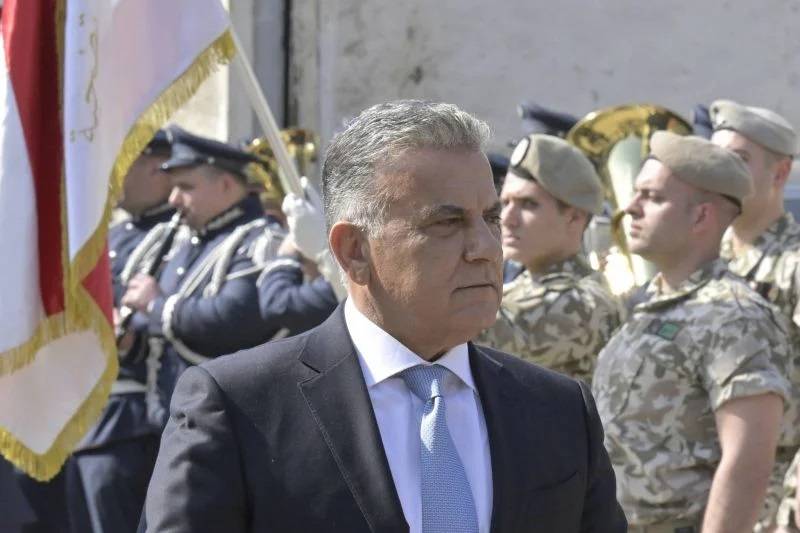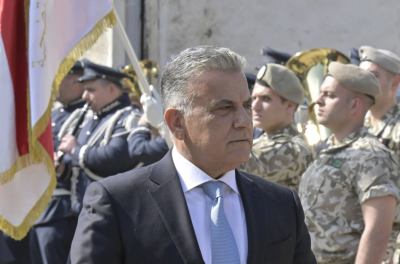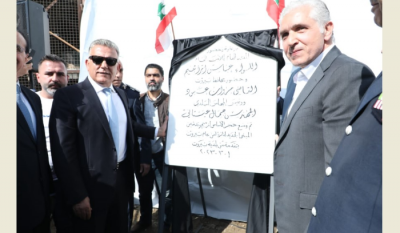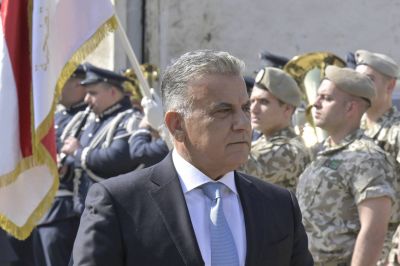
Former head of General Security Abbas Ibrahim. (Credit: Nabil Ismail/Annahar)
BEIRUT — The former head of General Security, Abbas Ibrahim, who left his post earlier this month after reaching retirement age, has called for a secular state in Lebanon and announced that he will not join any political camp, despite his willingness to enter the political arena.
In an interview published Thursday by the daily Asharq al-Awsat, Ibrahim criticized the existence of a multitude of security services in the country, the leaderships of which are divided between the different religious communities. Ibrahim called for "abandoning confessionalism and moving towards a secular state."
"The Shiites have their hands on one security service, General Security, the Sunnis also (the Internal Security Forces), while the Christians have two to balance (State Security, headed by a Greek-Catholic, and the army headed by a general of Maronite faith)," he highlighted.
'Destructive performance'
Ibrahim also contended that there is "as a rule no planning" in Lebanon, but rather a system of "action and reaction that prevails in politics."
"This mentality, if it continues, will be bad" for the country, he warned, criticizing the "destructive performance of politicians."
Regarding his intention, mentioned in a speech at the end of his term, to enter politics after his duties as head of General Security came to an end, he said he "will not join any political group."
"I have always been independent," he said.
Some people have suggested that Ibrahim could replace Nabih Berri as head of Parliament in the future, as he has never hidden his desire to enter politics. He has told journalists that the Ministry of Foreign Affairs is notably in his sights.
However, he is among the officials prosecuted by the Lebanese justice system in the investigation of the deadly double explosion of August 4, 2020 in the port of Beirut, but he has always refused to appear before Judge Tarek Bitar, who is in charge of the investigation.
Ibrahim retired on March 1 after almost 12 years at the head of the GS. After some turmoil, his mandate was not extended, contrary to what had been predicted by some observers, despite Hezbollah's stated support for such an extension.
This Shiite officer from southern Lebanon had established himself as an effective mediator on both the local and international scenes.
Abbas Ibrahim was finally replaced by Gen. Elias Baissari, who is acting head of the GS in principle until a new government is formed under a new president of the republic, as the current government is not authorized to appoint a new head of the security service.
'Dormant' terrorist cells
When asked about the end of his mandate, the former director of General Security revealed that he refused to remain at the head of this organization five months ago, before accepting a "temporary" extension in the face of the impossibility of appointing a new director.
Regarding the twists and turns that occurred a few days before the end of his term, Ibrahim said caretaker Prime Minister Najib Mikati "said he would rely on the law regarding this file, in a way that has caused confusion, despite the fact that legal experts had found legal solutions for the extension."
Addressing the passport crisis in the country, Ibrahim rejected any responsibility, saying that this issue "is the responsibility of the authorities."
"The government and the governor of BDL [Banque du Liban] have passed the buck. We needed $15 million," he said.
Since the economic crisis began about three years ago, demand for passports has increased, leading to a shortage of travel documents. With this unprecedented rush for passports, waiting times used to sometimes stretch to a year or more.
Commenting on the security situation in the country, Ibrahim said he was concerned about the growing impoverishment. "The security situation is good. But the social situation could lead to clashes in the street between citizens and security forces," he warned. "There are dormant terrorist cells in Lebanon, which are mostly under surveillance," he revealed.



